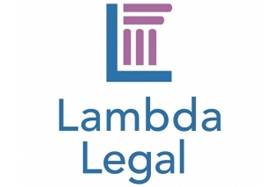
Headscarves and Gay Rights and Work, Oh My!
Blog Search
Tomorrow the U.S. Supreme Court will hear arguments in EEOC v. Abercrombie & Fitch, a case brought by the Equal Employment Opportunity Commission on behalf of a young Muslim woman who was denied employment at an Abercrombie & Fitch (A&F) store in Tulsa, Oklahoma, because a manager decided that her wearing of a headscarf – a hijab – was inconsistent with A&F’s “Look Policy.” What this case has to do with LGBT rights may not seem obvious.
Indeed, because we have been devoting so much effort to opposing demands for broad religious exemptions, some may find it quite surprising that Lambda Legal has filed a friend-of-the-court brief on behalf of Samantha Elauf in this case. But freedom of religion, when not used to harm others, is a core American value that we strongly support. And we know full well that any minority can be harmed by being required to conform to majority stereotypes of appearance, mannerisms or conduct when there’s no real business need for such demands.
Our brief highlights the importance of religious accommodation as protected by the federal employment nondiscrimination law, Title VII of the Civil Rights Act of 1964. It also emphasizes the distinction between appropriate accommodations that enable religious minorities to participate in the workplace without burdening anyone else and improper accommodations that permit discrimination against other employees or customers. There is a world of difference between personally wearing a head scarf and refusing to provide goods or a service to LGBT people based on religious beliefs.
The issue before the Supreme Court is whether Elauf can bring a discrimination claim even though she did not directly inform A&F that she wears the hijab for religious reasons and did not directly inquire whether doing so conflicted with company policy. She did wear it during her initial interview and believed it posed no problem because she had inquired ahead of time through a friend who already worked at the same A&F store and been told wearing the hijab was acceptable. In fact, the hiring manager assumed she wore the item for religious reasons and decided to hire her anyway based on her interview. But, a more senior manager overrode that decision.
Title VII requires employers to accommodate applicants’ and employees’ needs for religious accommodations as long as accommodation is possible without undue burdens on the employer. The statute does not require applicants and employees who need a religious accommodation to notify the employer or potential employer about potential conflicts with company policy even if they do not know about the policy in question. Our brief stresses that the law requires reasonable communication in both directions to identify potential problems and resolve them and, most importantly, that courts must honor the actual words of the statute without judicial imposition of additional requirements that screen out valid claims. On this point, we argue that the Court should abide by its own prior ruling in Oncale v. Sundowner Offshore Services, Inc. that all claims of discrimination that meet Title VII’s statutory requirements must be allowed to proceed.
While our goal is to confirm this proper approach to interpreting Title VII, this case does not call upon the Court to second-guess the series of decisions issued by lower courts that allows employers to refuse to accommodate religious beliefs that negatively affect the workplace. Instead, the case helps illustrate the difference between reasonable religious protections in employment and the kinds of religious claims we have been fighting across the country that wrongfully attempt to justify discrimination against members of the LGBT community.




